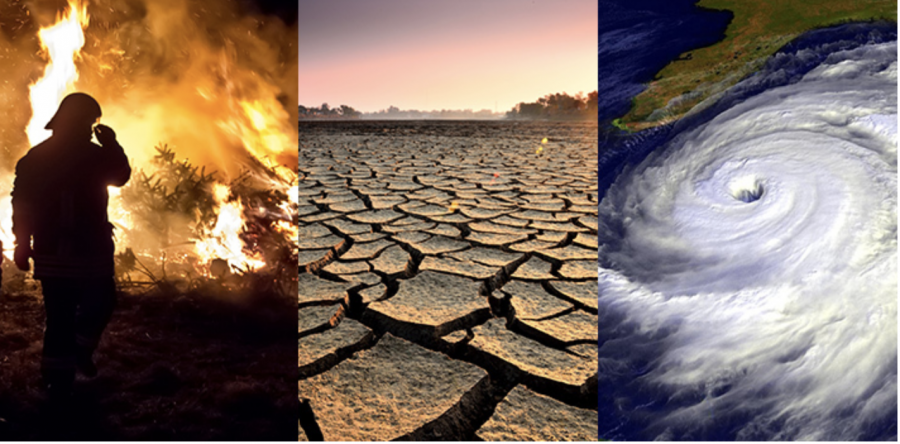The Major Effects of Climate Change
2020 showed many repercussions of climate change.
January 24, 2021
According to NASA, the world has been seeing an increasing amount of the major effects of climate change. Due to warming temperatures, ice glaciers are melting, ecosystems are collapsing, and the ice on rivers and lakes have started to melt earlier. The world continues to burn fossil fuels, and environmental policy is not even close to slowing the process.
2020 showed major effects of climate change, as the east coast faced many wildfires, there were hurricanes in the east, heatwaves across the U.S., and Antarctica lost much of its ice. The wildfires in California were especially devastating this year, burning over 4,359,517 acres of land through over 9,279 wildfires. Fire season came early this year and the heat only made it worse. On the east coast, there were a total of 13 hurricanes. This differs from 2014, where there were a total of 8 hurricanes.
Zoe Kuhn ’22 strongly believes in climate change and believes that humans are the cause of the global issue. Zoe feels that it is gaining the public’s interest as people are realizing its irreversibility. She has seen many pictures of polar bears losing ice in the artic and statistics showing how warm the planet has gotten. Zoe also claimed that educating people about climate change would be a great step in the right direction for people making a change. She believes the best way to do that is through social media and online resources, as the internet is where most people get their information. Zoe believes that social media posts would raise awareness for many people, especially the younger generations who are going to need to change the world that they grow up in. Zoe also thinks that people with large followings such as celebrities, influencers, politicians, actors, etc. should be making a bigger deal about climate change because they can reach a larger amount of people.
As the U.S. faces the major effects of climate change, the world must begin to slow its rapidity, as it will soon grow irreversible.


